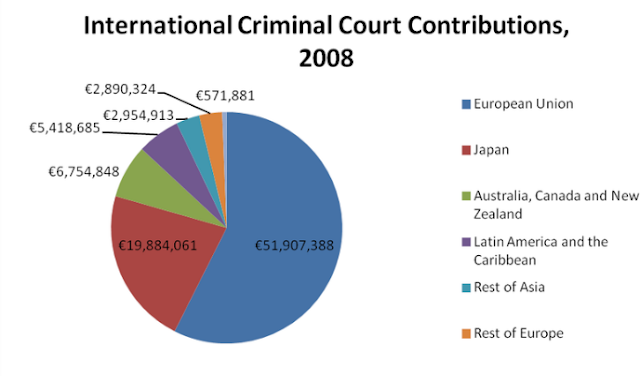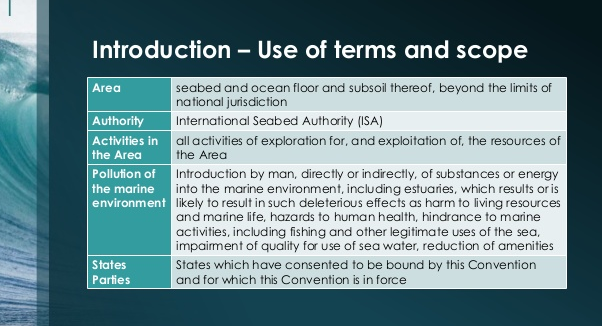The Limitations of the International Court
The record of the International Court at first sight will perhaps not seem impressive. There is only a limited category of cases that are brought before it. Jurisdiction is entirely voluntary: either a nation accepts it for the particular case concerning it, or it enters into a treaty providing for a settlement of disputes by the Court, or it gives a general undertaking to accept the Court’s jurisdiction for a particular category of cases in relation to other nations which have likewise accepted it. In practice, both the number and importance of cases taken to the Court have diminished rapidly so that now less than one case a year is heard which is often not of major importance. In a number of cases the Court has had to find that it has no jurisdiction. Over one of the most important case (the Corfu Channel) the party found responsible for the dispute refused to comply with the Court’s judgement. In another important case (the South-West Africa case) the Court originally refused to pass judgement in the form in which it had been presented. None of the kind of cases that have most frequently led to the use of force among nations have been taken to the Court at all. On issues where international law can be most uncertain or most contested, and which most often give rise to war the limits of permissible external intervention in civil war situations, political support for revolutionary movements, the right of nationalisation of international waterways or other resources the rulings of the International Court have not been brought into play at all.
A still more contentious issue concerns the lack of enforcement power available to the Court to secure compliance when it does make judgements. The Security Council can, under Article 94, decide upon measures to be taken to give effect to ”the judgements" of the Court, but it has never done so. This leads to a situation where many doubt the utility of bringing disputes to the Court, wondering (with some reason) whether the other disputants involved will accept its jurisdiction, and comply with its judgements.
There is no evidence that even if jurisdiction was guaranteed, governments would be any more willing to move to the Court. The failure to use the Court is not so much the result of inadequate prior commitment as it is due to a lack of agreement among states regarding what the Court can achieve, and to a belief that political remedies may be a better way to pursue political causes.
All this leads some to doubt if the Court has any worthwhile role to play in international relations. It is true that the international Court has not yet provided the means to establish a wholly new world order based on law and justice. But it would have been foolish to expect this. Although the judgements of the Court, and the conventions drawn up by the Commission, have been mainly on relatively non-controversial subjects, this does not mean that they have been of no significance. The slow accumulation of international judgements and law can eventually contribute to the establishment of a more lawful world community in which mutual obligations are recognised.
But for this to happen certain conditions have to be fulfilled. The first condition concerns the substance of the law applied. At present, a great deal of international law appears to many governments of the world to be a code made in the first world primarily for itself. The peoples and governments of other areas have played little part in building it. It can be represented as ideological legitimacy for the status quo, designed to uphold the existing distribution of power among states.
Some effort has been made to counteract such attitudes. But ultimately the only way in which confidence in the judgements of the Court and in the drafting of new conventions can be increased is to make efforts to convince those from developing countries that the law applied provides for change as well as stability, reflects a sense of justice felt in the world as a whole, and does not necessarily work against the interests of the have-nots. Like any other law, international law must take account of the changing needs of developing societies if it is to retain the confidence of the world community. Secondly, this means that the Court in its judgements may be required more often explicitly, to take account of considerations of equity, as well as of prescriptive rights. At present the court, under Article 38(2) of its statute, cannot take account of equity as against the established law. If the Court is to play an important role in an evolving world society, it must be concerned with equity as well as legal rights.
Some effort has been made to counteract such attitudes. But ultimately the only way in which confidence in the judgements of the Court and in the drafting of new conventions can be increased is to make efforts to convince those from developing countries that the law applied provides for change as well as stability, reflects a sense of justice felt in the world as a whole, and does not necessarily work against the interests of the have-nots. Like any other law, international law must take account of the changing needs of developing societies if it is to retain the confidence of the world community. Secondly, this means that the Court in its judgements may be required more often explicitly, to take account of considerations of equity, as well as of prescriptive rights. At present the court, under Article 38(2) of its statute, cannot take account of equity as against the established law. If the Court is to play an important role in an evolving world society, it must be concerned with equity as well as legal rights.
Advisory Opinions
Besides these 'contentious cases', the Court has also given a number of advisory opinions which have in some cases been of far reaching importance. Some of them related to the UN's own affairs. A particularly important one was that relating to the costs of peacekeeping forces. The Court advised that peacekeeping costs could be reckoned as normal expenses of the organisation for the purpose of Article 19. Though this was overwhelmingly accepted by the Assembly, the UN finally decided not to apply Article 19 as allowed by the advisory opinion. The Court gave an opinion in the early years of the organisation on disputes concerning admission into the UN confirming that no admission could be made without a Security Council recommendation. On a case arising out of the death of Count Bernadette, the UN Mediator in Palestine in 1948, the Court ruled that the UN had the capacity to bring a claim for reparations for the damage caused to the organisation as a whole. The Court also advised during the McCarthy period, when US staff were being dismissed, that the UN was not entitled to refuse to honour awards of compensation made by the UN Administrative Tribunal to staff whose contracts had been prematurely terminated. Finally, it ruled that Liberia and Panama should be accepted by IMCO for the purposes of membership of its Council as being among “the largest ship owning nations”.

.png)









No comments:
Post a Comment